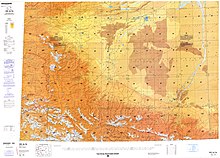Citations:Yengisar
Appearance
English citations of Yengisar
County
[edit]- 2007, James A. Millward, Eurasian Crossroads: A History of Xinjiang, London: Hurst & Company, published 2021, →ISBN, →OCLC, page 357:
- Adil (sometimes spelled Ahdili after the Chinese transcription A-di-li Wu-shou-er), like any Chinese hero, endured great hardships to get where he is today. He was born in Yengisar (in the Kashgar district) in 1971 as the sixth generation scion of a family famous for dawaz.
- 2018, Zhang Hui, “Xinjiang officials assigned as relatives to Uyghur villagers for ethnic unity campaign”, in Global Times[1]:
- An official surnamed Niu in Urumqi who was paired with a Uyghur family in a village in Yengisar county, Kashgar, at the end of 2016, told the Global Times that local villagers welcomed the stay of those "relatives," as they have been in contact for a year.
- 2019, Eva Xiao, Pak Yiu, “Razed mosques and pervasive surveillance make for a tense Ramadan in China’s Xinjiang”, in Hong Kong Free Press[2]:
- In Yengisar county, south of Kashgar, one mosque hung a photo of Chinese President Xi Jinping inside its premises, where most posters were dedicated to warning against religious extremism and promoting ethnic harmony.
Town
[edit]
- 1976, Rewi Alley, “Kashgar and Khotan in South Sinkiang”, in Eastern Horizon[3], volume XV, number 5, Hong Kong: Eastern Horizon Press, →ISSN, →OCLC, page 15, column 1:
- We passed a good deal of motor transport on the road which led to Yengisar and Yarkant. Kashgar is a trucking centre, and at night, then around dawn, one can hear convoys starting out to cross deserts and mountains.
- 1993, Judy Bonavia, The Silk Road From Xi'an to Kashgar[4], Passport Books, NTC Publishing Group, →ISBN, →LCCN, →OCLC, page 276:
- Sixty-eight kilometeres southeast of Kashgar is the small town of Yengisar, whose 400-year history of knife-making has made it famous throughout Xinjiang. A Yengisar knife is essential for every Uygur man, who wears it slung around his waist. A knife is especially important during the melon season, when it is produced with a ceremonial flair and thoroughly cleaned before use by cutting off the base of a melon. Knives are carefully chosen; hand-made ones encrusted with stones and inlaid with silver are highly valued, but just as effective are the sturdier ones with bone or horn handles and carving on the blade.
- 2014 September 17, Julie Makinen, “Great Read: For China’s Uighurs, knifings taint an ancient craft”, in Los Angeles Times[5], →ISSN, →OCLC, archived from the original on October 16, 2015:
- More knives for sale in Yengisar, China. The Uighur craft of knife-making is often passed from father to son.
